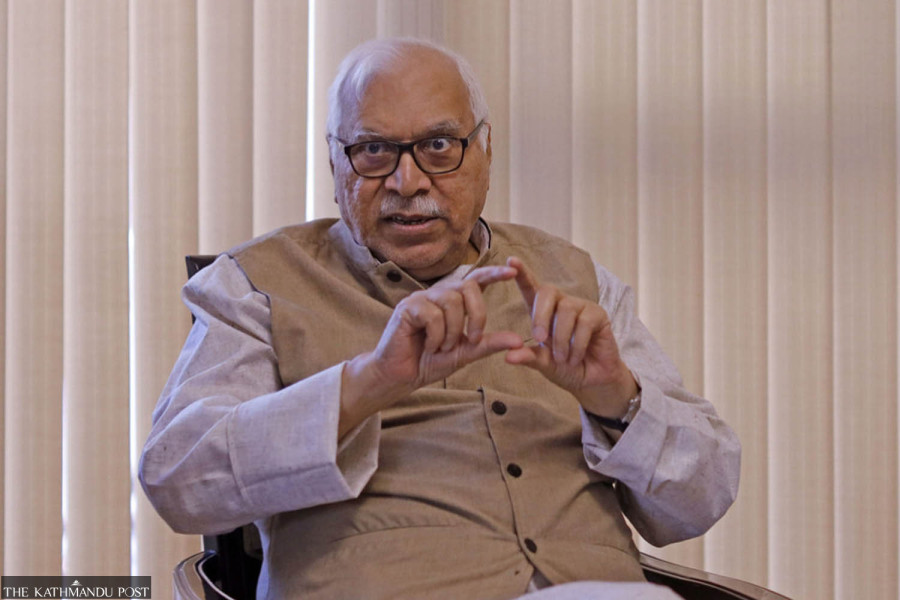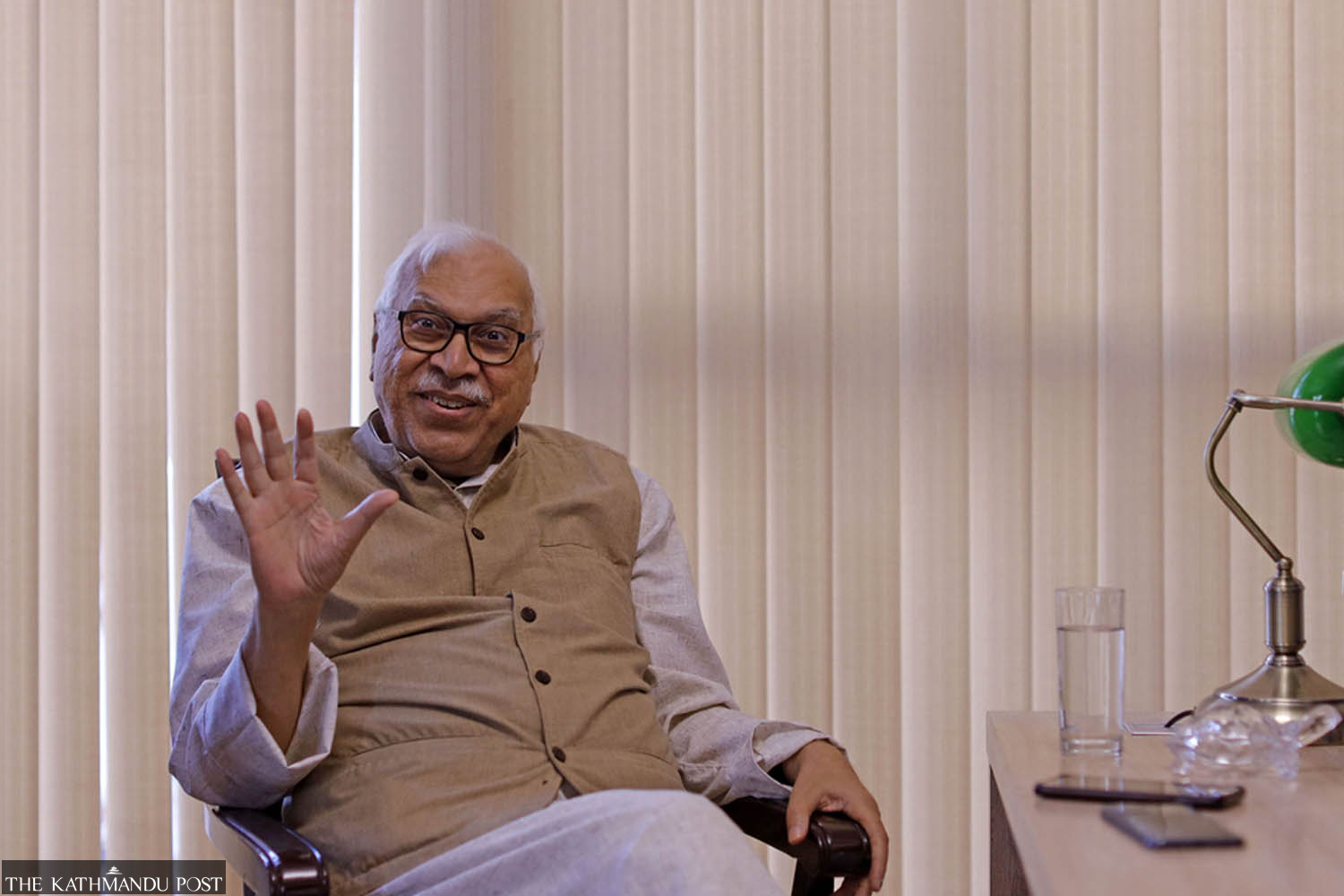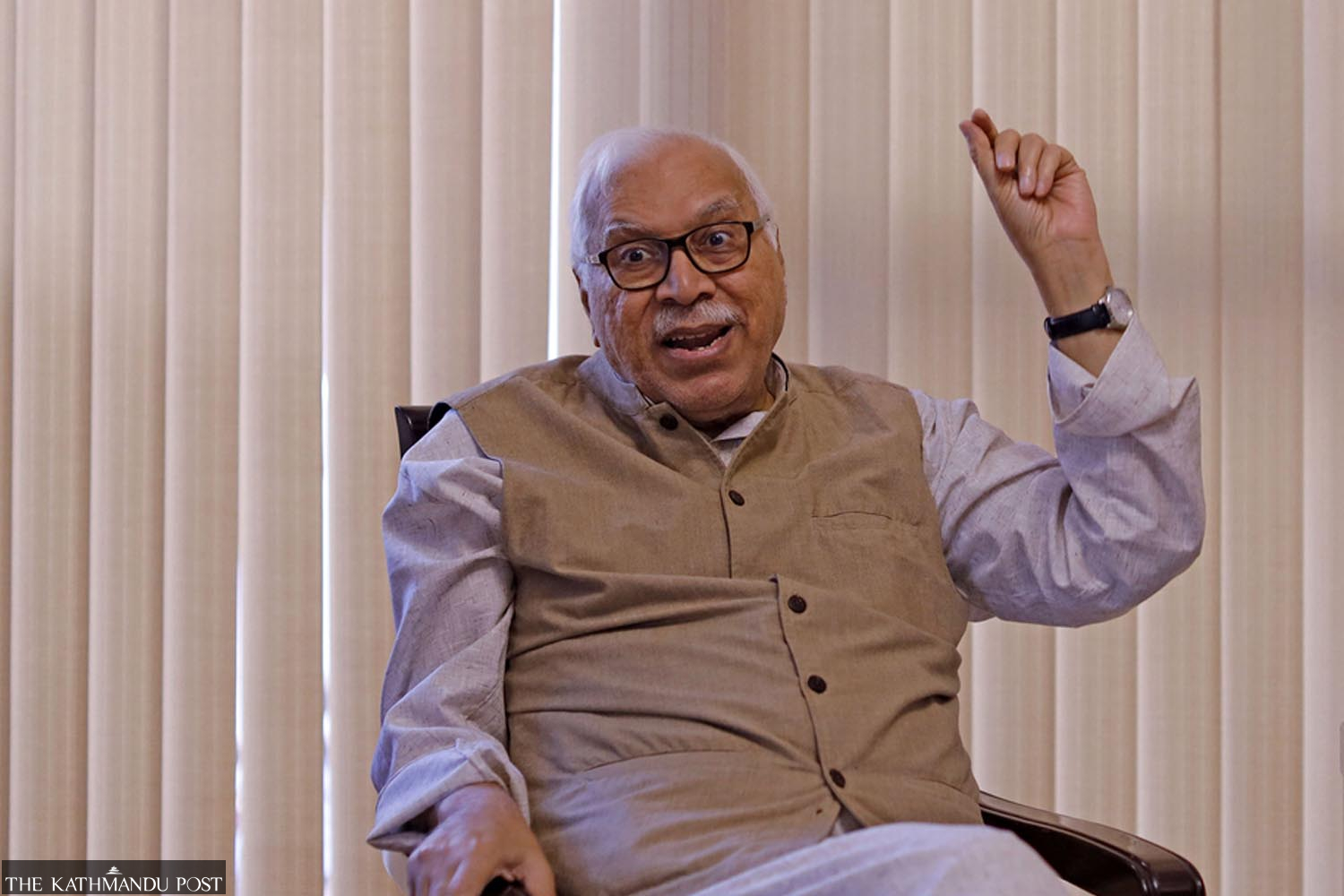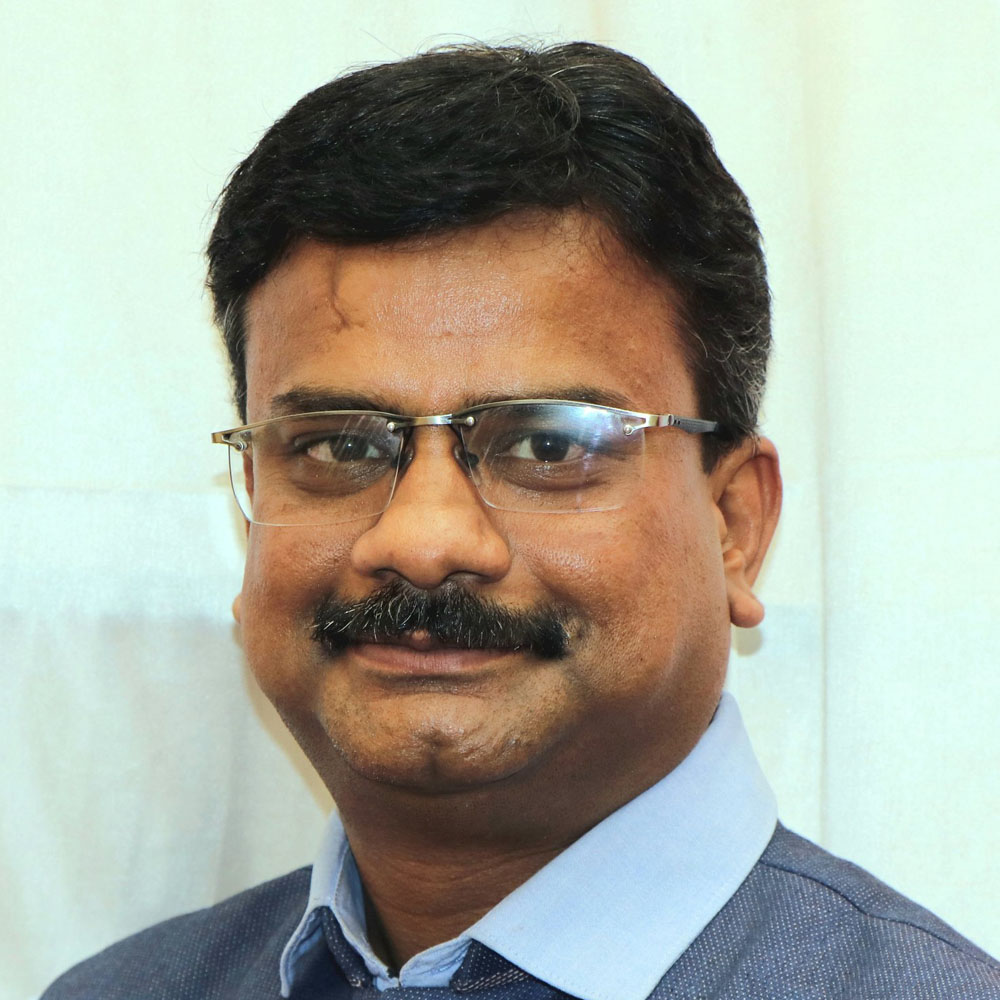Interviews
Frequent elections make the representatives accountable
You cannot blame the people for choosing absolute governments and giving parties large majorities.
Binod Ghimire, Suresh Raj Neupane & Rajesh Mishra
Former Indian chief election commissioner SY Quraishi is a strong advocate of credible elections and inclusive democracy. He has extensively spoken and written on how increasing flow of money in elections is taking away the level playing field for candidates from different backgrounds. During his recent visit to Kathmandu, Binod Ghimire of the Post and Suresh Raj Neupane and Rajesh Mishra of Kantipur talked to him on a range of issues from electoral reforms, challenges in maintaining election sanctity in the age of generative artificial intelligence, to why the world is swinging right. Excerpts:
Elections and democracy are intertwined. However, recent election results the world over are being seen as a threat to law and democracy. How do you see this phenomenon?
Democracy and elections are two sides of the same coin. Without elections, there is no democracy. And worldwide, for the past 10 years, there is a swing towards the right, even in the US. In India, of course, we have been on the right for the past 10 years and our prime minister got a third term, though with a bit of reduced majority.
The other thing is that in the past 10-12 years, there has been a debate on whether democracy is on a decline worldwide. The fact is that several indices of democracy indicate the decline. But people’s will cannot be taken as a threat to democracy. Sometimes they go to the left, sometimes, they move to the right. We cannot call it a threat to democracy.
The democracy indices which I mentioned have a different classification.
First, there are full democracies. Then there are flawed democracies. Third is hybrid democracies. The fourth is an authoritarian regime. So even in South Asia, we have one or two countries which are authoritarian, like Afghanistan and Pakistan. Their ranking keeps going up or down depending on the electoral and democratic performance.
In India, the right-wing is ruling, but they lost some majority. They are now depending on two other parties, which are not considered right-wing. Of course, Trump got an absolute majority this time winning both popular vote and electoral votes. He also won both the houses. So, this is what can make him dictatorial. As it is, he is mercurial, and everybody is speculating how he is going to behave. Let’s wait and see.
We can agree that people cannot be taken as a threat to democracy. But can we say that the elections, rather than complementing the spirit of democracy, are turning into tools to endorse majoritarianism?
Well, people’s will is supreme. If they have chosen absolute governments, if they have given large majorities, you cannot blame the people. Many times a lot of money is being used in elections, and only the rich people get to win elections. In India, for instance, 93 percent of MPs who got elected are crorepatis [multi-millionaires].
Now, law provides for a ceiling on expenditure, so that level playing field is established, where you and I can also contest.
But then, the ceiling on expenditure in India has one flaw—it is only for candidates, not political parties. This negates or neutralises the purpose of the ceiling. You can’t spend more than 1 crore, but your party can spend 20 crores on you. So where is the level playing field?
Some people say there should be state funding of elections. I oppose the idea but recommend state funding of political parties. It is difficult to monitor election expenditure because of black money. Funding political parties with cheques is what I recommend because it is easy to monitor.
So you think election management is more of a problem than the electoral system?
Actually, both are important, because obviously the management follows what the system prescribes. There are laws, there are rules, and they have to be followed. For instance, on political funding, there is a cap on expenditure provided by law, and the election management body implements it. Therefore, we have to improve both. Both are equally important.

We say public consciousness has increased with time, but there are also concerns that people are picking right-wing leaders. So what is wrong?
Actually, it’s a good question but difficult to answer. Why is it that the whole world is turning right? But there are also states like Austria where everybody was thinking the extreme right was winning, but then liberals won. So, there are exceptions. Maybe people want a strong and stable government, which has the benefit of continuity. On the other hand, such a government can be accused of majoritarianism.
I heard your prime minister, Oli-ji, mentioning frequent government changes. Obviously, how can the government function with this kind of instability? On the other hand there is the prime minister of India who has been elected for the third term. It is the people's choice, and you can't fault the people. The people chose stability and a strong government, and we have to respect that.
Are people not knowledgeable enough to pick the right representatives for themselves?
This question is often raised. For instance, we were talking about crorepatis and criminals in politics. Almost 46 percent of MPs in India have criminal cases against them. When we talk to these MPs, they say, look, people are choosing us, so how can you blame us? That way the blame is passed on to the people.
Why is the electorate choosing dishonest people against whom there are criminal cases? This debate leads us nowhere. So obviously there is something good these people with criminal background must be doing in the constituency. Maybe they commit crime outside the constituency and like Robin Hood, benefit their own people.
Aam Aadmi Party was a new party, and won 67 out of 70 seats in Delhi. They managed funds through crowdfunding and volunteers. And they won hands down.
What are the issues that have come up with the proliferation of social media and new media?
Social media and new media have revolutionised communication. But, initially, when the election commission of India in 2012 or 2013 came out with some regulation, there was a lot of public criticism, which was unjustified. Social media is also media. So whatever applies to media will apply to social media. And in the election context, what applies to the media? Two things: How much money are you spending on buying space in the newspaper and how much money are you paying to the TV channel?
Therefore, how much money are you paying to Facebook or WhatsApp, you have to account for it as well. The law on expenditure will apply to social media also. The second concern was how will the election commission catch the violators, as they are anonymous. The difficulty in catching them cannot be an excuse for not taking cognisance of their offence. If we cannot catch them today, tomorrow we will. How can something be illegal in a newspaper and legal on social media?
Rumours always play a big role in elections. Social media has multiplied the problem a thousand times. Within two, three minutes, your country can be burned by false, fake news. Social media however has many benefits. For instance, instead of buying space in the newspaper and TV channel, through WhatsApp or Twitter you can reach your audience in two seconds flat.
So social media is a double-edged weapon, as was the consensus in the Kantipur Conclave. And, you know, it is like a knife. Is a knife good or bad? If you want to cut an apple, it is good. If you want to cut a man’s throat, it is bad. It depends how you use it.

Now, artificial intelligence has given rise to even deep fakes. But AI has benefits too. Through artificial intelligence, impersonation can be stopped. Voting and logistics can be monitored. But there is so much fraud, deep fakes, and hate. So how do you catch them? That is something we have to be wary about. Frankly, I am worried because its dangers outweigh the benefits. We have to put our heads together globally to make sure artificial intelligence doesn’t overtake human intelligence for destructive ends.
In Nepal, both federal and provincial elections happen at once. India too is now mulling ‘one nation, one election’. What is your take on this?
There are benefits and there are problems. Logistically, it makes sense. But one MP of Odisha posed this question: ask the people. What do they want? Poor people love frequent elections because this is the only way they can highlight their importance. Otherwise, how many times have we seen that posters are put up in a constituency with headings like ‘Missing’, or ‘Wanted’ [representatives]? Frequent elections make the representatives accountable.
We heard you say that if India does ‘one nation, one election’, that will be the presidential election. What do you mean?
During parliamentary elections, there are national and international issues. The issues are different in Parliament [national], Vidhan Sabha [state-level] and Panchayat [local]. I would like to say that the local body elections are as important, perhaps more important because they’re closer to the people.
India’s prime minister initially said that there would be a national debate and a consensus would be reached. There was a debate for 10 years, but there was no consensus.
If there was no consensus, the idea should have been dropped. But the government decided unilaterally that we will go ahead and set up a committee led by the former president of India to suggest ways to implement ‘one nation, one election’. In my articles I have questioned the propriety of a former president being drawn into a government committee.
They have made some questionable recommendations. They say that simultaneous will mean Vidhan Sabha and Lok Sabha, not Panchayat. But the terms of reference clearly say that simultaneous means all three tiers. Then it says Panchayat elections can be held after 100 days. After 100 days, there is a separate election. It’s a new election and will require totally different arrangements. These are also not simultaneous elections.




 8.75°C Kathmandu
8.75°C Kathmandu







.jpg&w=200&height=120)






